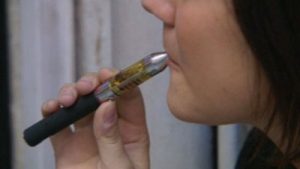SHOCKER: Positive E-Cigarette Review Slandered in the Media
Last week, a scientific review commissioned by Public Health England (PHE), an agency of the UK’s Department of Health claimed using e-cigarettes was 95% safer than smoking tobacco and encouraged smoking cessation services to recommend e-cigs to smokers looking to quit. It was extremely positive news for vaping, so it comes as no surprise that opponents of electronic cigarettes would try to slander it in the media.
 The latest attempt comes via The Lancet medical journal, where in an anonymous editorial, a number of scientists whose findings were quoted in the PHE review are accused of conflicts of interests. Specifically, the unnamed writer of the editorial claims that three of the eleven authors of ONE of the studies that the PHE review bases its findings had ties to e-cigarette companies or pro-e-cigs organizations.
The latest attempt comes via The Lancet medical journal, where in an anonymous editorial, a number of scientists whose findings were quoted in the PHE review are accused of conflicts of interests. Specifically, the unnamed writer of the editorial claims that three of the eleven authors of ONE of the studies that the PHE review bases its findings had ties to e-cigarette companies or pro-e-cigs organizations.
The study, led by David Nutt and published in European Addiction Research, was founded by EuroSwiss (a private health services company) and Lega Italiana Anti Fumo, of which Dr. Ricardo Polosa, co-author of the paper, is the chairman. In the original study, Polosa reports serving as a consultant to Arbi Group Srl, an Italian e-cigarette distributor, but the PHE didn’t bother to mention it in their review. Another author, Swedish scientist Karl Fagerstrom admitted to being a ‘consultant for most companies with an interest in tobacco dependence products’, while a third, Jonathan Foulds, of Pennsylvania State University in the US, has links to several manufacturers of smoking cessation products, including Pfizer, GSK and Novartis.
Dr. Ricardo Polosa disclosed his ties to the mentioned e-cigarette company in the original study, and he is just one of the 11 authors of the research. The other two scientists suspected of conflicts of interests appear to be linked to either tobacco or pharmaceutical companies, neither of which had an interest in boosting the popularity of electronic cigarettes by officially or unofficially funding positive studies about vaping. Not to mention that the review commissioned by Public Health England looked at many other studies before reaching its conclusions, not just the one cited in The Lancet.
The anonymous editorial also claims that the “95% less harmful” figure reported in last week’s review is simply the conclusion of a two-day workshop on the context of perceived harms from nicotine products, held in 2013. “The group [an international expert panel] scored the products for harm, and weightings were applied to the results. Based on the opinions of this group, cigarettes were ranked as the most harmful nicotine product with a score of 99·6. E-cigarettes were estimated to have only 4% of the maximum relative harm. It is this result that yields the ‘95% less harmful’ figure reported last week,” the author writes in The Lancet. Yes, I’m sure that’s exactly how reputed scientists like Professor Ann McNeill (King’s College London) and Professor Peter Hajek (Queen Mary University of London), who led the review, conduct most of their research…
In conclusion, the Lancet editorial accuses Public Health England of basing a major conclusion on a flimsy foundation and ultimately falling short of its mission to protect and improve the nation’s health and wellbeing.
As one commenter notes on the Telegraph website, “the PHE report has the backing of Cancer Research UK, the Royal College of Physicians, anti smoking pressure group, ASH UK, the Royal Society for Public Health, the British Heart Foundation and many other public and private health organizations,” yet that hasn’t stopped British media – and I’m sure international outlets will follow suit – from claiming that the review was written by e-cigarette industry funded scientists. That’s actually the headline The Telegraph and Mail Online used for this story.
What do they base their poor excuse for journalism on? An anonymous editorial which these newspapers claim was written by “health experts writing in the respected medical journal The Lancet”. Who are they? We don’t know, they didn’t bother signing the damn thing…
Misinformation about e-cigarettes in the media isn’t exactly new, but I’d say we’ve reached a new low when the work of renowned scientists is reduced to junk paid for by the e-cigarette industry. Sadly, most readers will actually believe these lies without doing their own research and end up regarding vaping with the same skepticism as smoking.
















